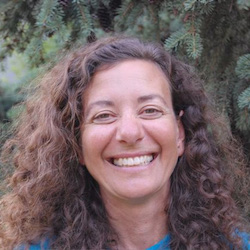 Department
DepartmentInstitute of Arctic Biology
OrganizationAlaska Institute for Justice
Emailrobin.bronen@akijp.org
Bio
Robin Bronen is a human rights attorney and co-founder of Alaska Institute for Justice, a non-profit she started in 2005, and also works as a senior research scientist at the University of Alaska Fairbanks. Her research specifically focuses on interdisciplinary community-based climate change adaptation research projects in the Arctic. Her background as a human rights attorney coupled with her interdisciplinary community-based participatory approach to social science research has enabled her to work closely with Alaska Native communities faced with accelerating climate impacts and develop research projects that respond to the research requests from Alaska Native communities.
Current Research
Research focus on community-based adaptation to climate change. Current and previous projects:•NOAA (PI): Resilient Alaska Native Coastal Communities: Integrated Social-ecological Monitoring and Assessment Supporting Adaptation Decisions (Current);
•NSF: Adaptive coupling of human-environment linkages in response to globally driven changes in rural Alaska (Current);
•Climate Change and Land Project: (customary land law, internal resettlement and new settlements as possible components to comprehensive rights-based solution to climate displacement) (Current);
•Munich Re Foundation: Resilience Academy – international research collaborative examining livelihood resilience (Current);
•NSF(PI ): Community-based relocation workshop between Carteret Islands, Papua New Guinea and Newtok, Alaska;
•Institute for the Study of International Migration, Georgetown
University: Crisis Migration Project;
•UNEP (United Nations Environment Program)-GRID Arendal
/Many Strong Voices (SIDS/Arctic collaboration on the human rights of community-based relocation);
•University of Alaska Community Partnership for Self-Reliance
and Sustainability (collaboration with Alaska Native communities in order to assist them to implement their concept of self-reliance for their community)
